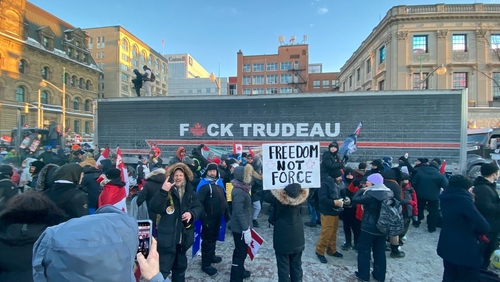The upcoming Liberal Party of Canada leadership vote presents crucial implications for the 2025 federal elections amidst Trudeau’s planned resignation. Canada’s Liberal Party sets March 9 as the date to choose a new leader, potentially reshaping the country’s political landscape ahead of the 2025 elections.
Trudeau’s Exit and Leadership Vote
The Liberal Party of Canada prepares to elect a new leader on March 9, 2024, as Justin Trudeau steps down after nine years in leadership. Trudeau’s decision to resign occurs against unfavorable pre-election polls, with the opposition Conservatives currently holding a lead. The race includes Chrystia Freeland, former Finance Minister, and Mark Carney, an esteemed central banker, as the party positions itself strategically for the approaching 2025 elections.
CANADA'S LIBERAL PARTY TO CHOOSE NEW LEADER ON MARCH 9: CBC
— FinancialJuice (@financialjuice) January 10, 2025
Key deadlines include the necessity for candidates to register by January 27, 2024, after which they must pay a substantial fee of CAD 350,000 to enter the race. This election outcome is crucial for the party’s future as they hope to reclaim political strength against current challenges.
The Liberal Party of Canada will select its next leader on March 9.
READ: https://t.co/1iefBngYBx
— CityNews Montreal (@CityNewsMTL) January 10, 2025
Candidates Entering the Fray
Among potential candidates, Chrystia Freeland, whose resignation from the Ministry of Finance preceded Trudeau’s decision, poses a significant bid for leadership. Mark Carney, known for his economic acumen, brings experience from his tenure as a central banker. Foreign Minister Melanie Joly and Innovation Minister Francois-Philippe Champagne remain uncertain entrants in this contest, which attracts substantial scrutiny and interest.
“After a robust and secure nationwide process, the Liberal Party of Canada will choose a new leader on March 9, and be ready to fight and win the 2025 election” – the party, Sachit Mehra.
Freeland’s candidacy, marked by recent criticisms, also highlights her vocal support of Ukraine amidst tense global geopolitics. Meanwhile, Carney, contemplating a switch from economic policy to broader governance, promises a fresh approach despite his lack of direct political experience.
Elections and Political Dynamics
The political landscape ahead is uncertain, as Parliament’s suspension until March 24 may delay potential elections. This aligns with the rule stipulating that the next federal elections occur by October 20, 2025. Current polling places the Conservatives significantly ahead, with a Nanos survey indicating 45% Conservative backing compared to the Liberals’ 23%.
“Protecting the integrity of our democratic process, while still engaging as many people as possible, is one of the Liberal Party of Canada’s top priorities” – the party.
With major political concerns such as domestic cost of living and potential border issues with the U.S., the newly elected leader will face immediate, extraordinary pressures. Whether the new leader can reinvigorate support and overcome impending no-confidence challenges remains a decisive factor for the party’s sustenance and influence in Canadian politics.
Sources:
https://dnyuz.com/2025/01/10/canada-pm-justin-trudeaus-liberal-party-to-elect-new-leader-on-march-9/
